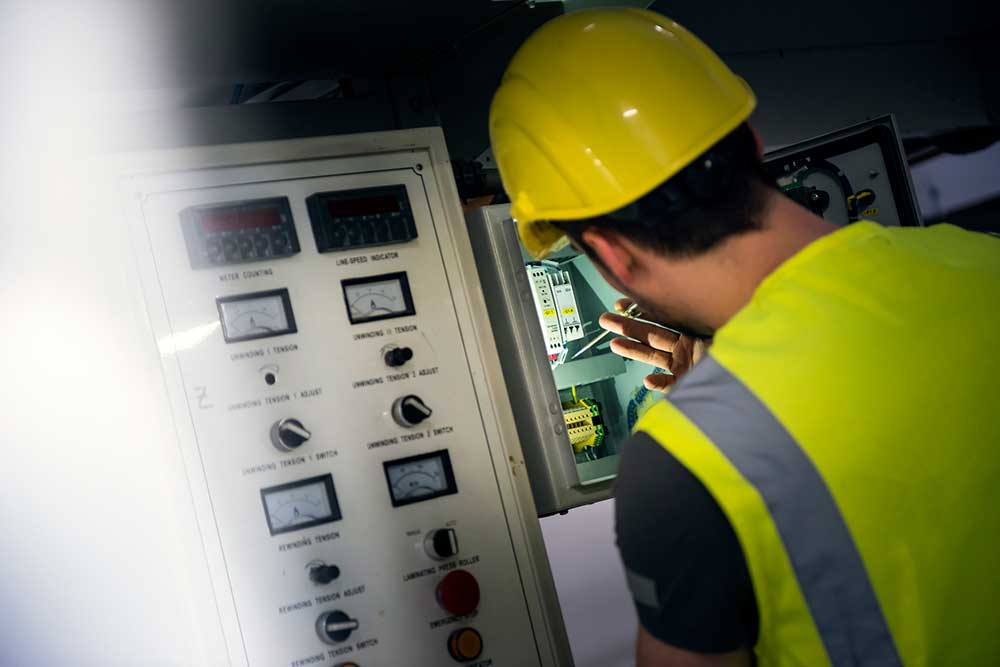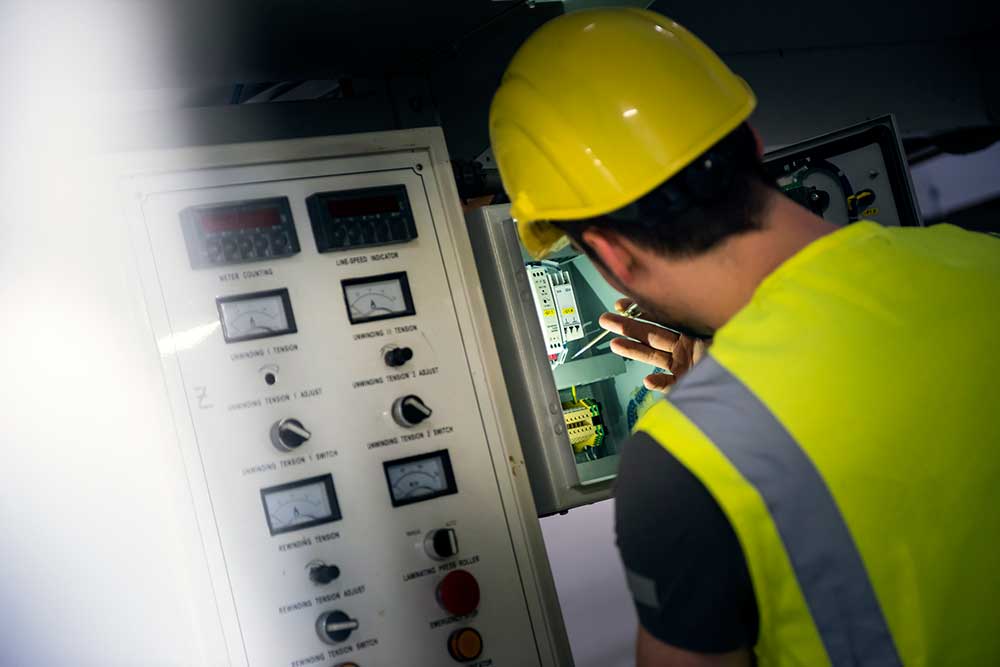
As a Fire, Emergency and Security Systems Technician, you will design, install, commission and maintain electronic systems in and outside simple and complex places to protect people, homes and properties from risk and danger.
These are systems detect intrusion, provide surveillance, monitor and control access to buildings, properties and sites or to detect fire and emergencies.
You will carry out planned jobs to install new systems, modify and maintain existing systems as well as respond to call-outs to repair faulty systems where you’ll utilise your problem solving skills.
You will need to be able to work independently or as part of a team and use your knowledge and skills to ensure systems have been appropriately selected and installed and maintained to a professional industry standards.

Starting salaries for electricians are around £21,000 to £25,000.
With experience and working at an incorporated engineer level, you could earn £28,000 to £40,000.
As a senior electrician you can expect a salary of between £40,000 and £65,000, with those chartered earning at the top of this scale.
Salaries depend on location, employer and level of responsibility.
Entry requirements will be determined by individual employers. Initial assessment of literacy and numeracy on entry should show potential to achieve the main outcomes of the programme. Typically, GCSEs in maths and English are required.
Often engineers then can register for an EngTech, a globally recognised level of professional registration for Engineering Technicians.
An engineer will have additional training if they are working on gas appliances or working in specific commercial premises, they may also have the opportunity to take additional qualifications to further develop their skills and extend their prospects into management, training or development.
Necessary cookies are absolutely essential for the website to function properly. This category only includes cookies that ensures basic functionalities and security features of the website. These cookies do not store any personal information.
Any cookies that may not be particularly necessary for the website to function and is used specifically to collect user personal data via analytics, ads, other embedded contents are termed as non-necessary cookies. It is mandatory to procure user consent prior to running these cookies on your website.